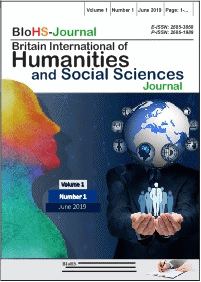The Political Communication Ethics of Traditional Dayah Ulema in Bireuen Regency, Aceh Province
Abstract
The political journey of Aceh's traditional dayah ulema before, did not succeed in gaining public support in the two election periods, namely the 2009-2014 period and the 2014-2019 period. Supposedly, the politics of the Dayah ulema had the full support of the people of Aceh which incidentally were a majority Muslim. This phenomenon is influenced by various factors, including political communication. Regarding scholars as political communicators, ethics is the most important thing in determining political success. Therefore, it will be examined regarding the ethics of political communication of traditional Acehnese dayah scholars. This study uses a qualitative approach with reference to ethnographic principles. The purpose of this study is to reveal the ethics of political communication in Aceh's traditional dayah ulema in Bireuen District.The results showed that the ethics of political communication of Aceh's traditional dayah ulema in the district of Bireuen generally referred to efforts to preserve their religious status as heirs of the Prophet in the morality of al-karimah. The spirit of the cleric who made them a public figure and public opinion to attract public empathy, is considered to have used religion for political purposes. The assumption of using da'wah pulpit as a campaign media indicates that there is justification for the absence of ethical communication politics.
Downloads
References
Alex Sobur. (2000). Paradigma Komunikasi Politik dalam Mewujudkan Masyarakat Madani (Makalah Juara ke III, LKTI dosen Unisba Tahun Akademik, tidak diterbitkan.
Ali bin Muhammad bin Ali al-Zain al-Syari Al-Jurjani, al-Ta'rifat. (1983). cet. 1, Beirut: Da al-Kutub al-Ilmiyyah.
Anselm Strauss & Juliet Corbin. (2003). Dasar-dasar Penelitian Kualitatif, Yogyakarta: Pustaka Pelajar.
Austin Fagothey, Ethics in Theory & Practice, from right & reason
Daniel Hutagalung. (2003). Problem Aceh: Menutup Aib dengan Darurat Militer, dalamElsam, Vol. II, No. VII.
Dedi Irawan. (2005). Modul Materi Kuliah Teori Perbandingan Politik.
Franz Magnis Suseno. (1993). Etika dasar, Cet. 6, Jakarta: Kanisius,.
Harmonis. (2013). Perbandingan Sistem Komunikasi Politik Presiden Soeharto Dan Soesilo Bambang Yudoyono (SBY), dalam Malaysian Journal of Communication, Jilid 28 (2)
Hasbullah. (2018). Communication Pattern of Wilayatul Hisbah, Lhokseumawe City in Implementing Amar Makruf Nahi Mungkar. Budapest International Research and Critics Institute-Journal (BIRCI-Journal). P. 194-205
Idham Holik. (2005). “Komunikasi Politik dan Demokratisasi Di Indonesia: Dari Konsolidasi Menuju Pematangan,” dalam Madani ed. II, Nopember.
Joseph A. Devito. (1991). Human Communication, The Basic Course, New York, Harper Collins Publishers.
Lg Wursanto. (1987). Etika Komunikasi Kantor, Jogjakarta: Kanisius.
Mudlor Achmad, Drs, Etika dalam Islam, Al-Ikhlas, Surabaya.
M. Amin Syukur, Etika Keilmuan, Jurnal Theologia, Semarang, Fakultas Ushuludin IAIN Walisongo,
M. J. Langeveld. (1959). Dr; Menuju ke Pemikiran Filsafat; terj. G.J. Claessen, PT. Pembangunan, Jakarta, cet III.
Richard West & Lynn H. Turner. (2008). Pengantar Teori Komunikasi: Analisis dan Aplikasi (Introducing Communication Theory: Analysis and Application), Jakarta: Salemba Humanika.
Sunan al-Tirmidzi, juz 4, h. Tuha Putra, tt.
Syukur Kholil. (2007). Komunikasi Islam, Cet 1, Bandung: Citapustaka Media.
W. Lawrence Neuman. (2013). Metodologi Penelitian Sosial: Pendekatan Kualitatif dan Kuantitatif, Edisi 7, Jakarta: PT. Indeks.
Laporan KIP Tahun 2009 dan Laporan KIP
Data Dinas Pendidikan Dayah Kabupaten Bireuen Tahun 2018.



.png)
_.gif)
















_.gif)












